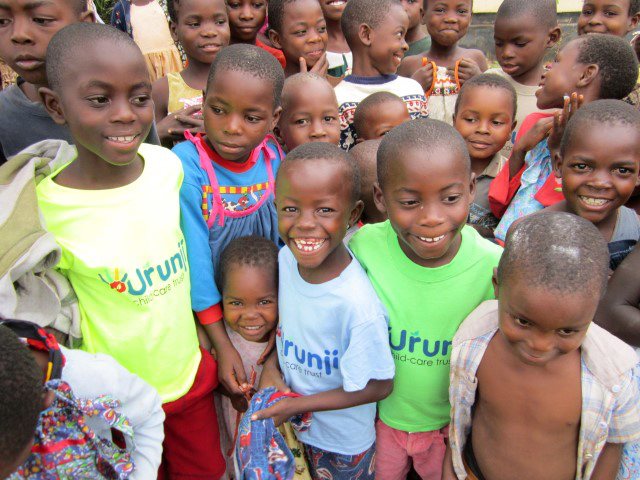As most of us have noticed, the ways people deal with adversity – both big and small, vary wildly. This phenomenon was displayed vividly to me just a few weeks ago as I volunteered at a children’s camp. As we gathered around the picnic tables to begin a craft, one child simply refused to participate in the activity. Curious as to why the child was resisting, I asked him why he seemed to hate crafts so much – all of the other children loved the activity. Without hesitation he responded, “Because I suck at art! Can I go play on the playground?” Aware of how difficult it can be to make children participate in camp activities that they seem to hate, I obliged and played on the swing with him until we began a different activity.
Although this story may seem unimportant and easily chalked up to the short attention span of 9 year olds, I think there is a valuable lesson to be learned from this experience. One of the books I read this summer was entitled, “Mindset: the new psychology of success” by Carol Dweck, a psychologist at Stanford University. In this book she discusses two mindsets: growth mindset and fixed mindset. Fixed mindset refers to the belief that skills and abilities are unable to be changed. For example, people who believe their ability to improve their intelligence, reading skill, writing skill, sports skills, or skills in the workforce cannot be changed hold vastly different views from those who believe these skills are able to be developed – a sign of growth mindset. What does this have to do with this child refusing to participate in crafts? If we look back, it was his perceived inability to ever become good at crafts that made him not even attempt to try the activity. How can this be damaging when we apply this fixed mindset to more important aspects of life, such as education?
If this fixed mindset is carried over to the classroom the effects can be devastating. For example, if a student with fixed mindset does poorly in English during the early years of school, they may begin to think of themselves as simply incapable of improving writing and reading skills. This can lead to vast reading deficiencies later in life which may damage their chances to attend a good college or be competitive in the work force. Often these deficiencies can be fixed relatively easily by targeting areas of difficulty such as grammar or vocabulary, but because the fixed mindset student is less open to criticism they will not pursue help from teachers to improve these skills. This situation is made worse if the teacher shares the fixed mindset view – they will take the failure of the student to excel as evidence of their lower intelligence. But how can we develop skills such as reading, writing, and vocabulary if we do not actively work on them?
This type of situation is quite common in class rooms across the globe, but it is not only for children who do poorly. Exceptionally gifted children also can fall victim to the fixed mindset. Consider an example of a gifted English student that excels throughout elementary school, however, once reaching high school begins to find the reading much more difficult, and faces tougher grading from teachers. The fixed mindset student will take this minor adversity as a sign that they are no longer intelligent and are more prone to find excuses to avoid taking further English classes or make excuses for poor grades. Common excuses may include: “my teacher hates me”, “this class isn’t fair”, or “I didn’t try anyway”.
The belief that certain skills are beyond the grasp of those not deemed intelligent enough is simply untrue, as Carol Dweck highlights by describing how individuals with growth mindset deal with adversity in the classroom.
A student with growth mindset who receives a poor grade in an English class is more likely to ask the teacher for further advice and seek out more challenging English material that will push their current skills past their present boundaries, ultimately making them better English students. It is not uncommon for growth mindset students to outperform even the most talented fixed mindset students in the class room. This student who struggled with English throughout the early years of school but actively worked to improve these skills will likely become a better English student than the exceptional student who gave up once things became difficult.
This idea is discussed further in a ted talk by a professor at the University of Pennsylvania named Angela Duckworth who has done research about achievement in school aged children. In this talk she says:
“IQ was not the only difference between some of my best and some of my worst students. Some of my strongest performers did not have stratospheric IQ scores, some of my smartest kids weren’t doing so well..but what if doing well in school, and in life depends on much more than your ability to learn quickly and easily?…one characteristic emerged as a significant predictor of success… it was grit. Grit is passion and perseverance for very long term goals. Grit is having stamina. Grit is sticking with your future, day in and day out, not just for the week, not just for the month, but for years. And working really hard to make that future a reality… Talent doesn’t make you gritty… data show very clearly that there are many talented individuals who simply do not follow through on their commitments.”
– Angela Duckworth, Ted Talk
What does this mean for students across the globe, especially in areas that lack resources such as Malawi? It may be especially important to teach our children about the gift of failure, and the proper was to think about achievement. We must be able to praise failure the same way we praise success in not only the classroom, but outside of it as well. Even despite the many daily struggles faced by children Malawi and those who commit themselves to improving their lives, it is important to realize that failure is not a permanent condition. Rather, failure is a place that is necessary for growth and later success.
About the Author
Kumsa Yuya is an Ethiopian born Canadian who has recently graduated from the University of Guelph in Ontario, Canada. In the pursuit of his Criminal Justice and Public Policy degree he has become particularly interested in issues surrounding social justice and human rights. Law, politics, prison reform, religion, sexuality, education, and race are among the topics that he is most interested in.
Bibliography
Dweck, Carol. Mindset: The New Psychology of Success. New York: Ballantine Books, 2007.
The Key to Success? Grit Dir. TED Talk. Perf. Angela Duckworth. 2013. TED Talk.




